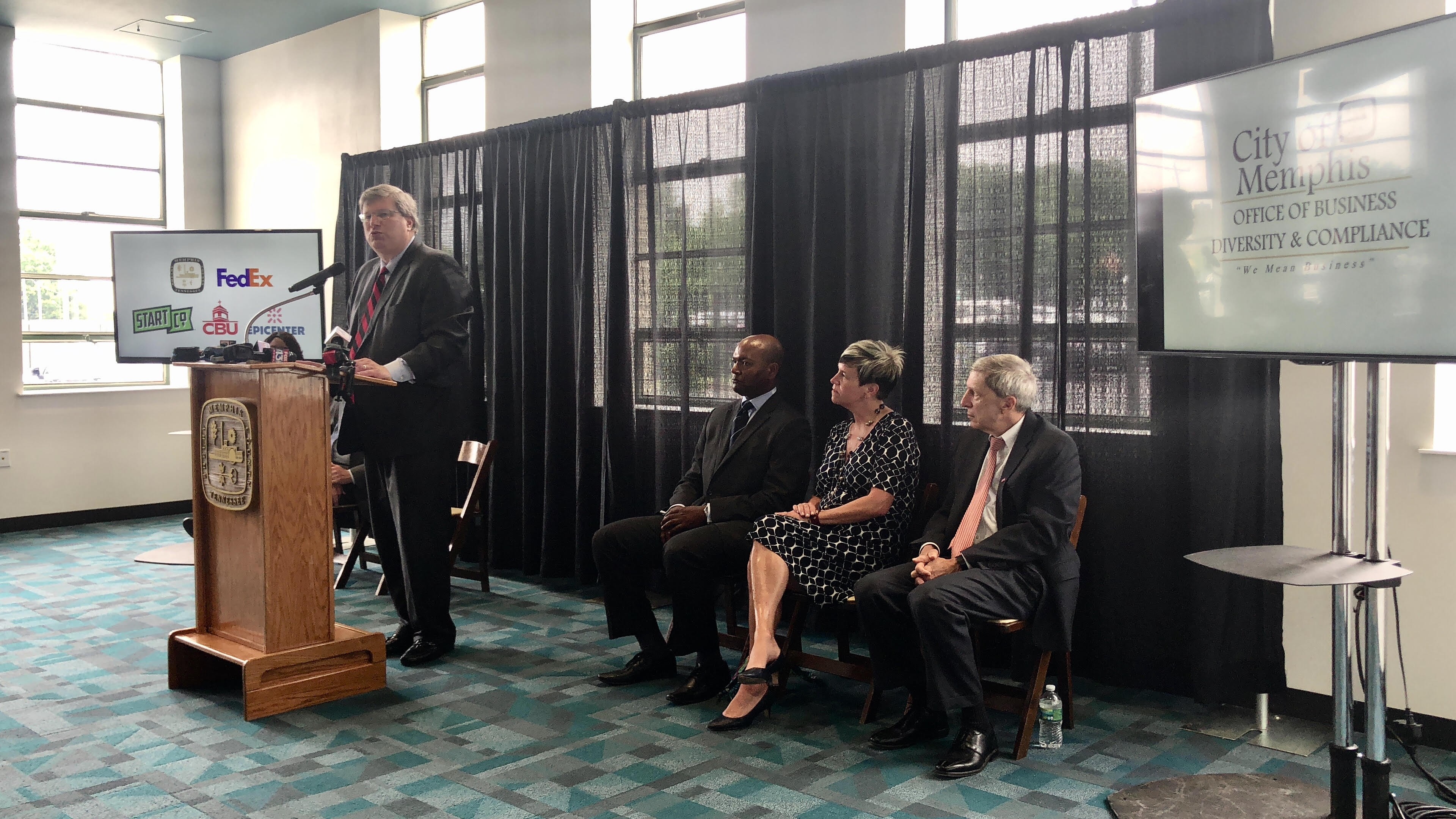
A new program designed to help grow minority businesses in the city is slated to launch soon, Mayor Jim Strickland announced Tuesday.
The 800 Initiative will provide technical assistance, coaching, loans, and grants to the approximately 800 African-American-owned businesses in the city that are in between the start-up and full-scale business phase. The goal is to grow the businesses’ annual revenue by $50 million by 2023.
[pullquote-3]
“To truly boost our economy, we must do everything we can to empower small businesses,” Strickland said. “And for us to have a direct impact on generational poverty, and to achieve true equity in our economy, we know we must do everything we can to empower minority-owned businesses.
“The 800 Initiative isn’t just a step in the right direction — it’s a major leap forward.”
[pullquote-1]
The mayor has proposed allocating $500,000 of city’s budget for the next three years to the program, while Fedex is committing to put $1 million onto the program over four years.
David Cunningham, CEO and president of FedEx said one of the major challenges minority businesses face is access to capital, and now the initiative will address that by making capital loans available to the businesses in the program.
“FedEx exists today because of an entrepreneur who had the passion and the hard work and the desire to create something,” Cunningham said. “We certainly have a special place in our hearts for entrepreneurs.”
The 800 Initiative programming will take place in the recently renovated Universal Life Building. Local venture development accelerator StartCo will assist participants with network building, capital acquisition, and fund-raising. Local entrepreneurship hub Epicenter will provide technical assistance.
At Christian Brothers University, a Center for Innovation and Entrepreneurship is set to open in partnership with The 800 Initiative. There will also be new entrepreneurship courses, experiential learning credit, and job placement for students.
CBU president John Smarrelli Jr. said the initiative is another way that the university is addressing its strategic priority to “help advance the region’s economic appeal and promote fiscal empowerment.”
“Obviously, this is much more than an economic development initiative,” Smarrelli said. “At heart, this is about equity and empowerment, and I am extremely proud for CBU to shepherd this effort.”
[pullquote-2]
In the city’s most recent disparity study, 69,000 non-publicly-owned firms were identified. Of the total firms, 38 percent are white-owned, but still produce 90 percent of the 36.5 million revenue.
Furthermore, minority-owned businesses represent just 2.7 percent of the total business receipts. Since Strickland took office in 2016, he said he’s worked to increase that number. He reports that the city has “dramatically” increased its own minority contracting from 12 to 21 percent during his administration.
“It is imperative that we lead by example at city hall and that we get even further involved in building minority businesses,” Strickland said. “As we cast our vision for a third century that’s more prosperous and has more pathways to opportunity, these efforts must be at the very center.”